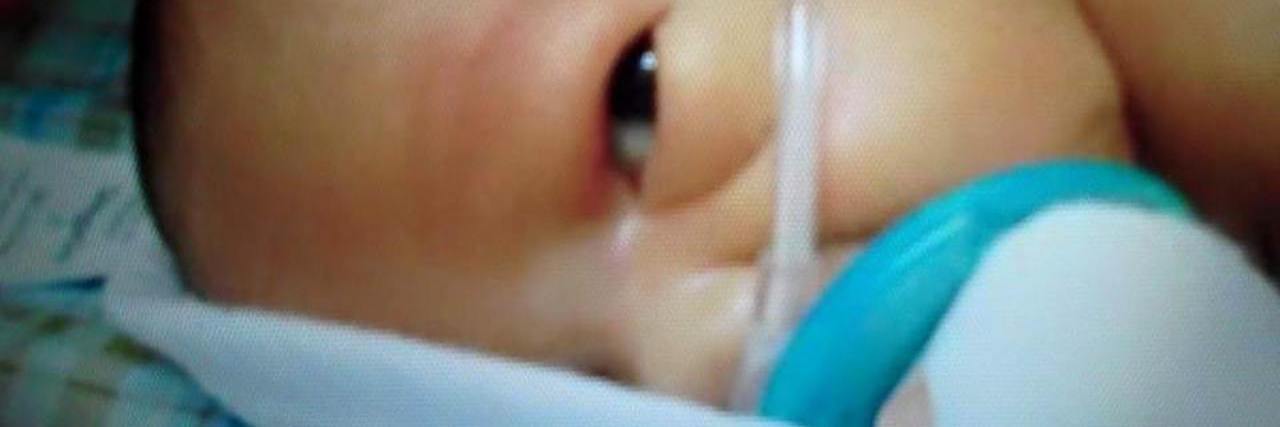What did your baby hear during the first few months of life? Did you play loud beeping noises all day and night?
What did your baby see? Did you shine bright lights over the crib? Did you allow groups of strangers in your house to watch his every move?
What did your baby feel? Did you keep him alone in a box for the majority of the day? Did you continuously prick needles in his skin? Did you tape wires to his precious skin?
What did your baby eat? Did you withhold food for weeks at a time?

When I tell people my twins arrived at 34 weeks, this is what I hear:
“Oh, that’s not bad.” “Great job, Momma! That’s almost full-term for twins.”
This is why we need NICU Awareness Month — so people will understand the challenges and trauma our most fragile babies must work so hard to overcome.
My twins spent six weeks in the NICU. That’s six weeks they heard continuous beeping sounds, instead of soothing lullabies. That’s six weeks they were blasted with bright lights, instead of being comforted by a soothing lamp. That’s six weeks of enduring heel pricks, PIC lines, X-rays, and incubators, instead of rocking in a comfy glider with mom and dad.
Dominic was born relatively healthy for a 4-pound baby but he needed a little help breathing, so they put him on forced air and inserted a feeding tube.. That means, I wasn’t allowed to breastfeed. As the days went on, he developed a serious intestinal infection. They stopped feeding him altogether, threaded a tube from his arm to his heart, and pumped in his nutrition through that tube.

For the next two weeks, the doctors performed multiple X-rays and loaded him full of antibiotics. I wasn’t allowed to hold him, so he stayed in his box, alone.
After the infection cleared, I held little Dominic for a couple days and they started feeding him through a tube. But the infection returned, and we started the process all over again.
Julian was much weaker when he was born. He wasn’t able to breath on his own or regulate his body temperature. The doctors put him in a separate room of the NICU reserved for the most fragile babies. He was placed on a stronger breathing machine and given nutrition, but no food.

During Julian’s first week of life, he wasn’t held, wasn’t fed, and was barely touched. Thankfully, he pushed through and was moved to an incubator right beside his brother — where he developed the same intestinal infection. (Here we go again). Julian’s infection wasn’t nearly as bad as Dominic’s. Sometimes, I think his gut was just sympathizing with Dominic’s.
With the help of the doctors and nurses, my babies made it home after six weeks — right before their due date. I will always be grateful for their hard work and dedication. They have some of the most important jobs on Earth.
The twins will be 4 this month. They are both healthy and happy, but have serious speech and cognitive delays. As a NICU mom, I wonder how their experiences affected their emotional and mental health. Did being deprived of touch contribute to Julian’s sensory issues? Did the bright lights, noises and needles cause them to have anxiety?

I will always refer to Dominic and Julian as “NICU babies.” That title not only lets people know how much they’ve been through — it shows people how strong they are and how much they have overcome.

Follow this Journey at Not an Autism Mom
We want to hear your story. Become a Mighty contributor here.

